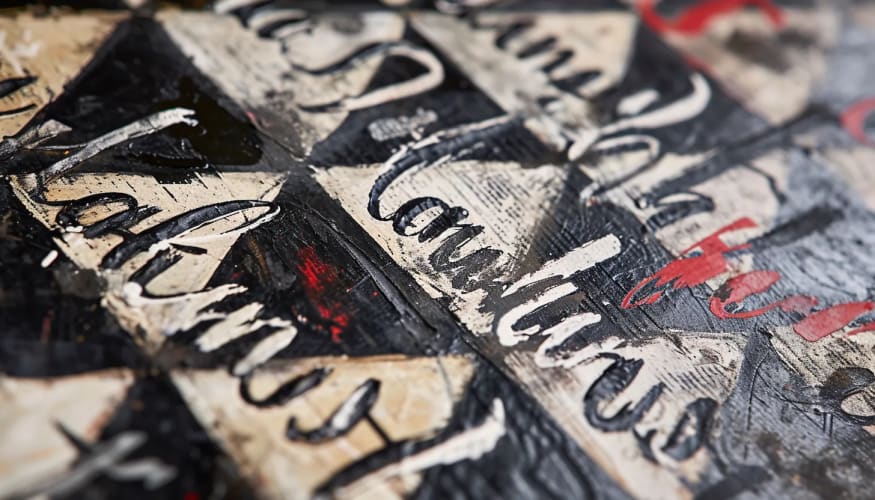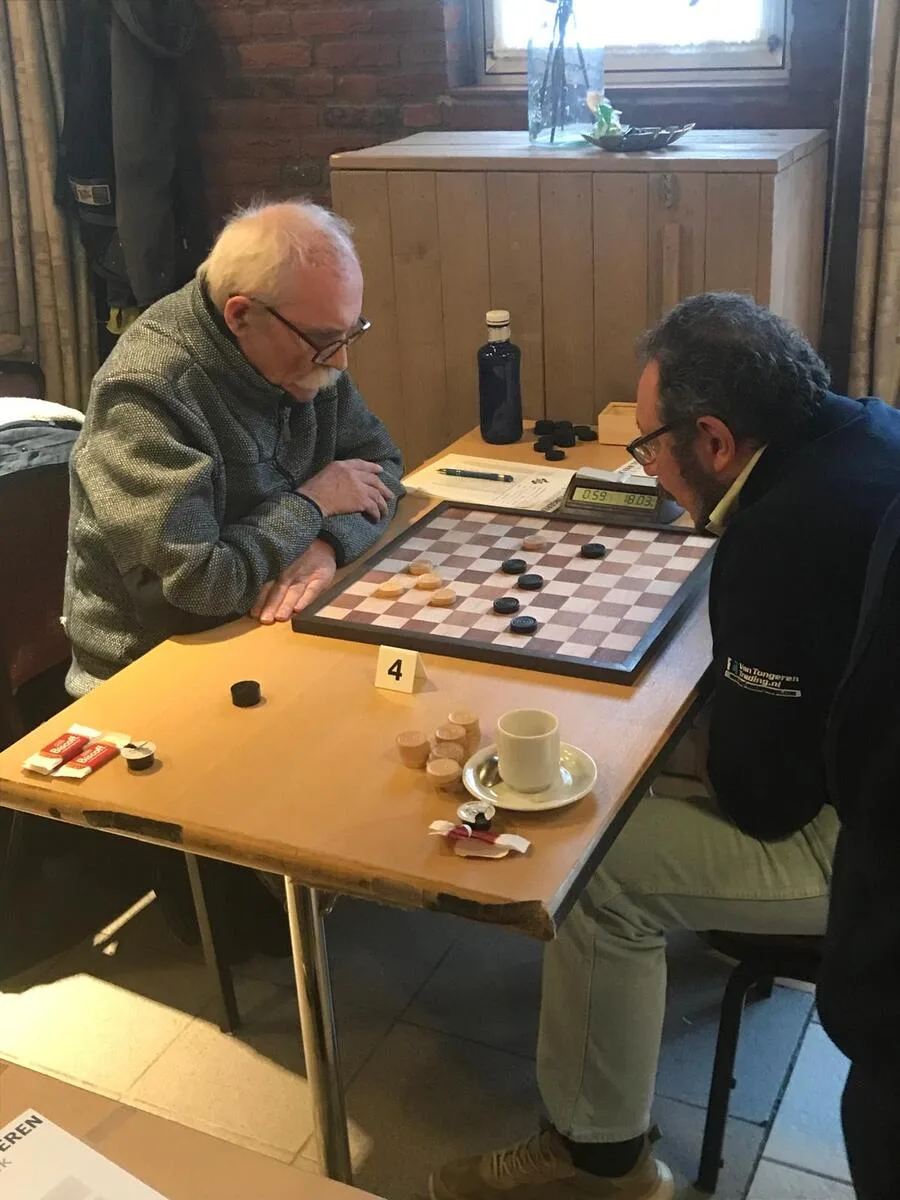In February this year, I played against Harm Wiersma. This was my fourth encounter with him. Only one was uninteresting, but the other three certainly were. I should therefore title this article: Three Clashes Against Harm Wiersma."
This aligns with two pieces I once wanted to write: "Three Winning Combinations Against Raimondas Berchis" and "Three Winning Endgames Against Alexander Baljakin."
Unfortunately, after my sudden departure to the Netherlands, I left all my draughts materials at home. One of the guests temporarily staying there found them worthless and threw everything away—priceless items: games, draughts compositions, analyses, letters, magazines, medals, trophies, and diplomas belonging to me and my wife.
It has been twenty years since then, but the pain of this loss still lingers. Among the vanished notations was my game from the 1988 Belarus Championship against Baljakin— one of my finest games ever. Sadly, I can only recall the broad strokes of that game, so my idea for that article remains on ice. All my attempts to recover this game have so far been unsuccessful.
But back to the games against Wiersma. While the games against Wiersma from 1992 and 1995 were brimming with variations and calculations, the one from 2025 involved much more psychology and reasoning.
Actually, readers always prefer to see rich play and beautiful combinations.
So, I have no choice, and in order to cater to readers who enjoy variations, I present here three games instead of one .
Table of Contents
1992 Presman-Wiersma, Brunssum Main Group (shown below)
1995 Wiersma-Presman (Belarus-Netherlands)
2025 Wiersma-Presman (National Club Championship, Ereklasse)
This fascinating game below was played in the GMI group of the international tournament in Brunssum. (Young readers might not even know such a thing existed. In fact, they might not even know that invitation round-robin tournaments existed. A quiz for the readers: when and where was the last such tournament held?)
When asked after the game if I wasn’t afraid to play so boldly against the great Wiersma, I replied: “If your youthful dream was to play draughts against Wiersma, you wouldn’t—when it finally happens—start exchanging pieces to secure a draw.”
Not that I want to act like the wise mentor, but that was my approach. It led to painful defeats, but also to victories that adorn your career. (With a wink to the younger generation.)
But this game also deserves a small non-draughts-related introduction. A few days after this tournament, we (Gantvarg, Vatutin and I) were to depart for Italy as the Belarus team for the Olympiad (the World Team Championship). The Soviet Union had just collapsed, and there was still much chaos. Institutions (including sports) were suddenly promoted from regional to national status and were not yet accustomed to functioning that way. In short, we were in Brunssum without transit visas and without money, and we shouldn’t have been able to get to Italy at all.
I won’t delve into the details of this adventure—that alone could fill a small book. But I just want to recall that, partly thanks to Wiersma’s help, we managed to arrange our trip. Wiersma was the coach of the Dutch team, and by helping us, he was also aiding one of his own competitors. This sporting gesture is without a doubt worthy of a Fair Play award, and I am still sincerely grateful to him for it.
There in Italy, we became world champions as the Belarus team. This remains the most important and honourable trophy in my long draughts career.
Now, let’s move on to the technical part.

